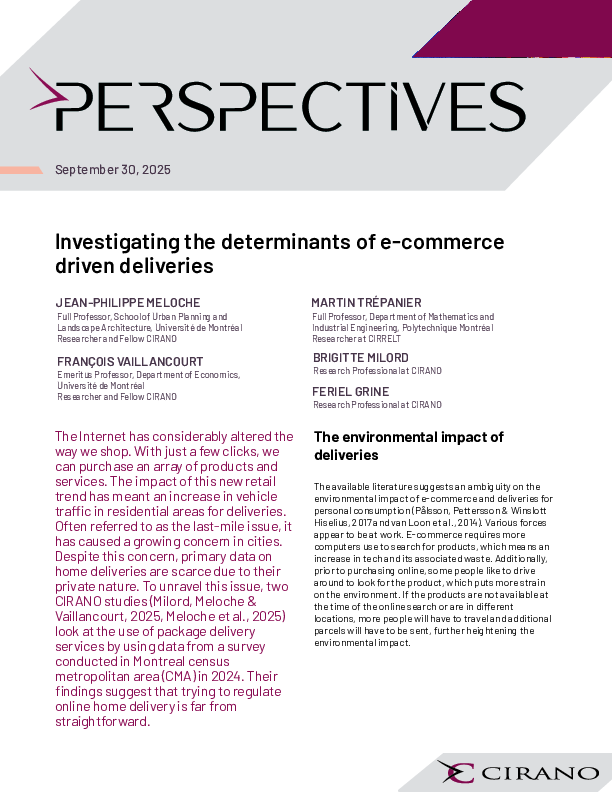Les pratiques numériques des professionnels au Québec - État des lieux et pistes de réflexion pour accompagner le virage numérique
In Quebec, there are 55 regulated professions organised into 46 professional orders and supervised by the professional system, whose fundamental mission is to protect the public.
This study, conducted by CIRANO and the International Observatory on the Societal Impacts of AI and Digital Technology (OBVIA) under the aegis of the Quebec Interprofessional Council (CIQ), aims to (1) provide a clear picture of the use of digital technology by Quebec professionals, (2) highlight the issues at stake with the digital shift on their activities and (3) identify the needs of professionals in this changing context.
The preliminary step was a scoping review of the topics addressing digitization, and more specifically the documents distributed by Quebec's professional orders and regulatory bodies to their registered members.
Subsequently, workshops (individual interviews and focus groups) organised either with professionals or with representatives of the orders, as well as the analysis of the results of an online survey of Quebec professionals made it possible to examine and put this overview into perspective, and provide a thorough understanding of the various issues related to these transformations. The study was conducted through the prism of the three sectors of activity mustering the 46 orders: Law, Administration and Business (LAB [DAA in French]), Engineering, Planning and Science (EPS [GAS]), and Health and Human Relations (HHR [SRH]).
While the use of digital technologies is widespread among all Quebec professionals, skills and knowledge are not assessed by sector of activity, by order, or even at the level of a profession, but rather at the level of the professional or the organization in which they practice.
Although in recent years Quebec professionals have been awakening to the benefits and possibilities of new digital technologies, this development has remained relatively limited and cautious. The COVID-19 pandemic and its constraints imposing the rapid adoption of new digital practices was a sudden realisation. The digital shift is sometimes a continuous transition, but can also be a disruptive transformation that sets in motion many upheavals. The adoption of new technologies is rarely trivial and involves theoretical and practical knowledge, financial resources, a global strategy to remove organisational barriers, as well as support for both decision-makers and professionals.




